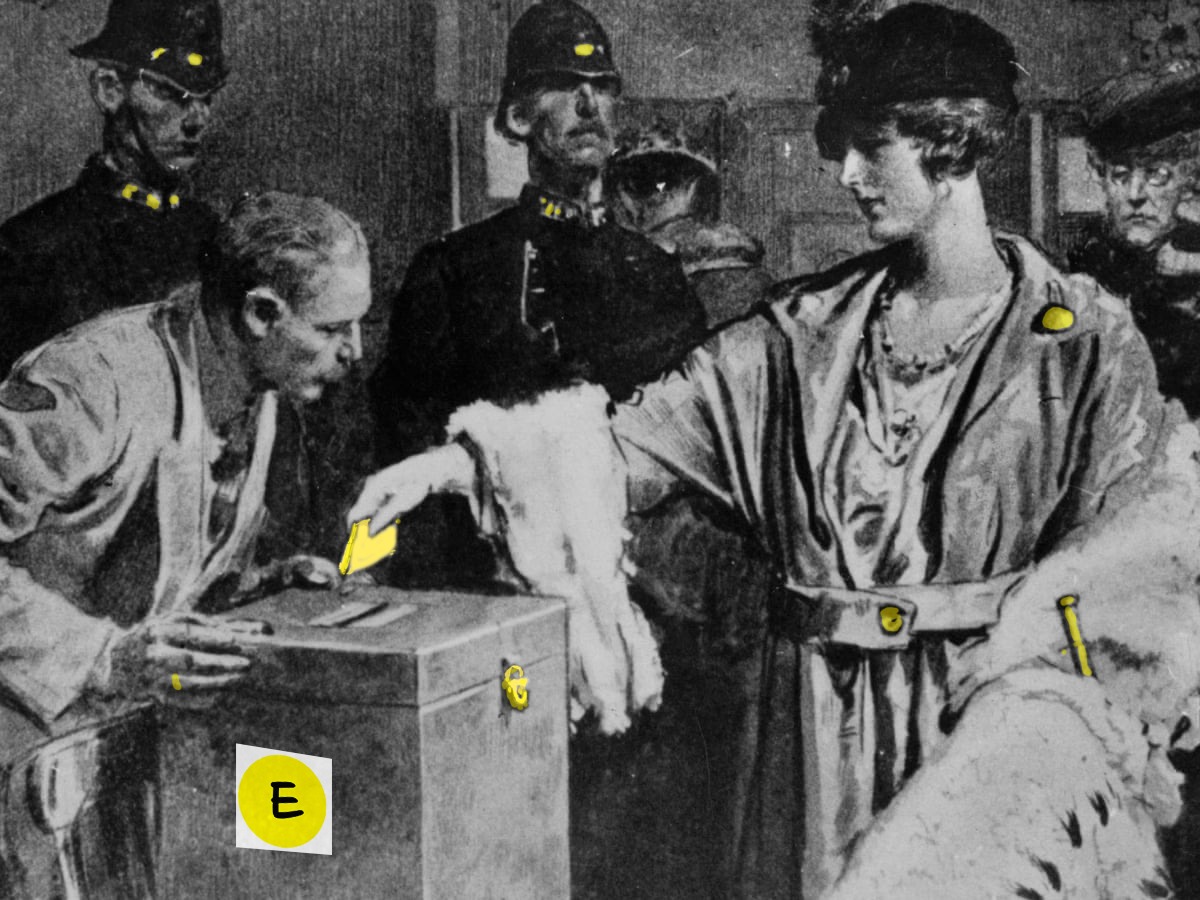IN
IN
JPN
EN
Join Our Communities

According to The Economist Intelligence Unit’s (EIU) 2021 Democracy Index survey, which ranks 167 countries across various factors, including their electoral processes, civil liberties, and levels of political participation, global freedoms hit a record low last year. The index’s global average fell to 5.28 out of 10, the lowest since the EIU started the survey in 2006, with less than half the world living under what could be considered a form of democracy.
Even before the pandemic, voter apathy in democracies reached an all-time high. From boardrooms to parliamentary floors around the world, leaders have been looking for ways to lower barriers to engagement, especially amongst digital-native generations from millennials to Gen Z.
With the advent and maturation of blockchain technologies over the last decade, it seems they just may have found it.
In Thailand, the National Electronics and Computer Technology Center (NECTEC) has developed a blockchain-based election voting system that uses a hybrid model allowing citizens who lack digital literacy to vote.
Likewise, in the Philippines, which has a large diaspora of overseas workers numbering in the tens of millions, the government looked at blockchain-based voting solutions to get more of their diaspora to vote, running mock trials in 2021.
The COVID-19 pandemic caused a temporary blip in governments and other organizations in Asia and worldwide testing forms of digital governance, such as e-voting (characterized as a frictionless form of collective decision-making by digital means). Amid continuing border closures, physical distancing measures, and lockdowns, the need for easy, secure, and above all transparent tools to facilitate various forms of governance seems like a logical fix to keep the gears of good governance turning.
Unlike other forms of digital voting - historically dogged by episodes of hacking, data theft, and privacy issues - solutions built on blockchains offer a way for democratic systems to thrive in decentralized, transparent ways that promote integrity in government and business.
Blockchains’ secure and immutable nature means voting can take place over a computer or mobile device instead of having voters traipse into the local polling center or cast a mail-in-ballot that’s then processed manually by election officials. And as any tech boffin will tell you, the technification of legacy systems typically means a cost reduction.
Purely on economic grounds, the concept of lowering the Cost of Voting (COV) makes sense. Take, for instance, the 2020 U.S. presidential election. According to sources like CNN and the BBC, the 2020 race cost c. USD 14.4 billion - the most expensive election ever. While much of the cost rested with fundraising done by candidates and spent on wooing voters, a good portion also sat with U.S. taxpayers in the administration of the election at state and federal levels. Simply put, votes tracked through a blockchain provide for a quicker, tamper-proof way of counting votes in real-time, which may lead to greater voter participation, better ballot security, and all at a fraction of the cost.
The term ‘Electronic Governance’ or ’e-Gov’ first circulated in academic circles in the 1990s and extends to government services and aspects of election processes and governance. However, with the promise of blockchain technologies, the term ‘digital governance’ has started to gain prominence. Blockchains like the Tezos network provide an indelible record of any transactions on the chain; their unalterable nature severely limits the potential for interference or abuse of power.
Other characteristics of blockchain tech lend themselves to fundamental aspects of inclusive governance largely because the motivations of blockchain’s early progenitors sprung from the desire to democratize systems. In a world where almost every system supporting civilization is increasingly centralized and unequally distributed - from the global financial system to government, business, and access to resources - blockchains decentralize power structures and provide a technological base to build and record consensus. And the foundation of consensus, it can be argued, is trust.
Nobel prize-winning economist Kenneth Arrow posited that trust is a social lubricant and essential for collective undertakings. If Arrow is right, then how can blockchains - characterized by their ’trustless’ nature - engender the very thing needed to propel the next evolution in governance (and government, for that matter)?
A recent board election for the Association of Crypto-Currency Enterprises and Start-ups Singapore (ACCESS) provides an ideal example of how blockchain technology can facilitate robust digital governance. The non-profit, which works with government and regulatory bodies, educational institutions, and the business sector to promote blockchain engagement and adoption in Singapore, allowed stakeholders to elect new board members using a decentralized electronic voting platform called ELECTIS.
The ELECTIS app combines several technologies to facilitate frictionless and secure electronic voting. The app uses DJANGO for user authentication and open source SDK Election Guard to configure the election and create smart contracts (among other tasks).
The app uses the Tezos blockchain to create a transaction to update the contract with an IPFS fingerprint of the artifacts to supply proof of election. Through the use of blockchain, ELECTIS is able to provide all of the most important hallmarks of a democratic election process, including safety and anonymity, safe encryption, and ballot tracking.
Whether through apps like ELECTIS or government-sponsored election technologies, blockchain’s involvement in democracy’s digital evolution should usher in an era of greater accessibility for stakeholders at all levels of society. The digitization of voting mechanisms and other forms of digital governance seems like a logical step in a world where people have the power to vote in their pocket in the form of a smartphone - and perhaps that’s just what we need for good governance to thrive.